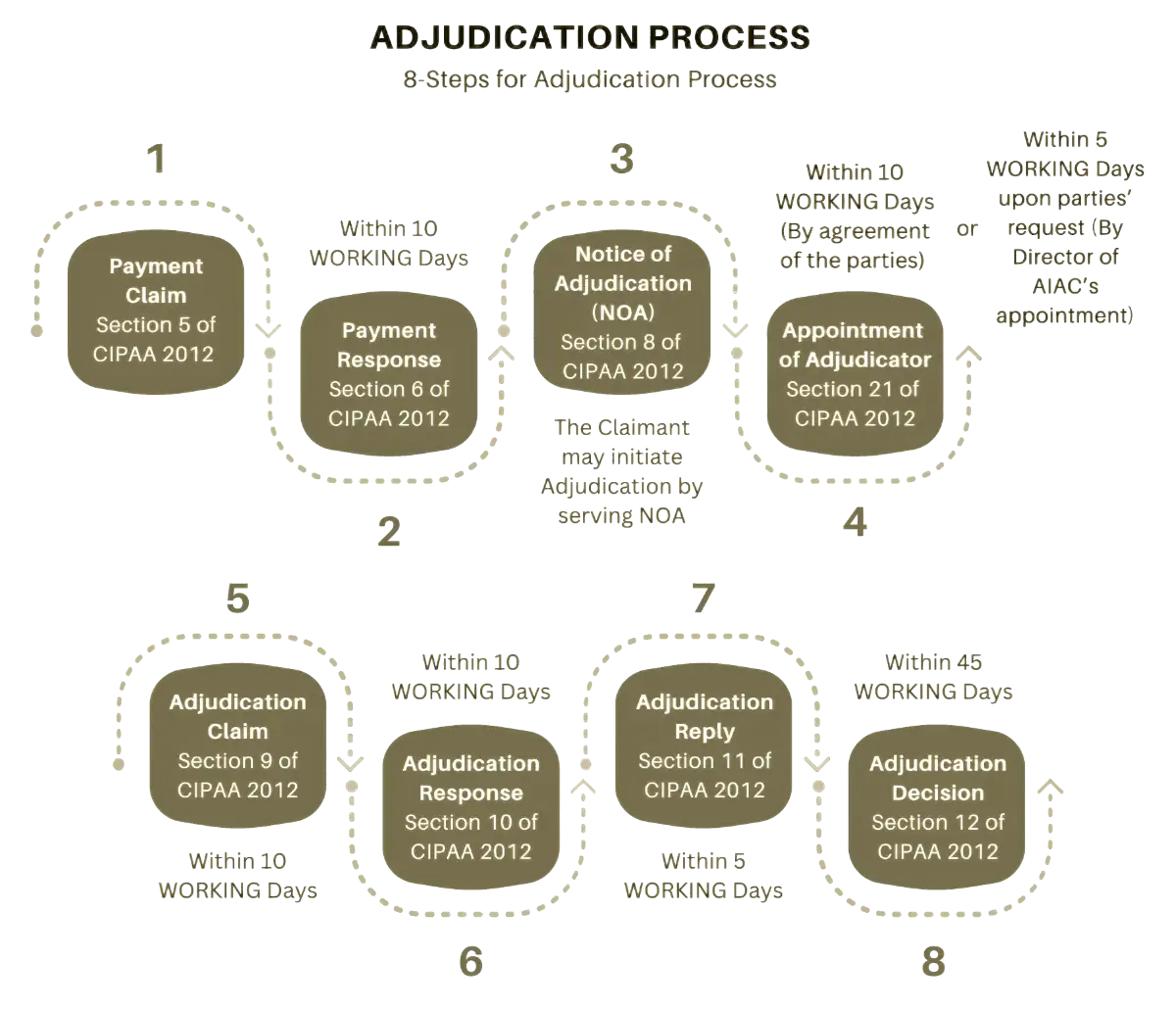3 Basic Things You Need to Know About Your CIPAA Claims
by Jason Chong & Athirah Asnizar ~ 22 April 2024
Non-payment by (i) the employer to the main contractor or (ii) the main contractor to the sub-contractor, is common in the construction industry. As a result, the main contractor or sub-contractor faces severe cashflow issues to continue and/or complete the works as required under the contract.
Fortunately, the Parliament had enacted Construction Industry Payment and Adjudication Act 2012 (“CIPAA 2012”) to tackle this issue. However, not everyone can invoke CIPAA 2012)
In this article, we will highlight 3 basic things you need to know about your CIPAA claims.
-
Scope of Adjudication
Section 2 of CIPAA 2012 states as follows:
“This Act applies to every construction contract made in writing relating to construction work carried out wholly or partly within the territory of Malaysia including a construction contract entered into by the Government”
Section 2 of CIPAA 2012 provides that one must prove the following before bringing a CIPAA claim:
- There must be a written construction contract; and
- The construction contract must relate to construction work carried out wholly or partly within the territory of Malaysia.
The Federal Court in Martego Sdn Bhd v Arkitek Meor & Chew Sdn Bhd and another appeal [2020] 6 MLJ 224 confirmed that CIPAA 2012 is appliable to all payment claims relating to work done or services rendered under written construction contracts.
However, Section 3 of CIPAA 2012 explicitly states that CIPAA 2012 does not apply to construction contract entered into by a natural person for any construction work in respect of any building which is less than four storeys high, and which is wholly intended for personal occupation. Hence, a contractor will not be able to bring a CIPAA claim against an owner of a three storeys high bungalow for non-payment for work done.
Further, CIPAA 2012 does not apply to matters involving claims for overpayment claims (see FZL Power Engineering Sdn Bhd v Norangkasa Enterprise Sdn Bhd and another case [2022] MLJU 1534) and loss of profit (see Rosha Dynamic Sdn Bhd v Mohd Salehhodin bin Sabiyee & Ors and other cases [2021] 1 MLJU 1222) as these can be pursued in Court or Arbitration.
-
Valid proof
Obviously, you cannot tell the Adjudicator that “I have done the work, but the Respondent has not paid me yet” without any proof. You must prove that:
- you have done the work with, amongst others, pictures, videos, daily site report, and site inspection forms ;
- the Respondent has not paid you; and
- under the clause of the construction contract, the Respondent shall pay you within a certain timeframe.
This is crucial and a determining factor as to whether you will succeed in an Adjudication proceeding.
This is highlighted in Maju Holdings Sdn Bhd v Spring Energy Sdn Bhd [2020] MLJU 1162, which provides as follows:
“[20] … Statutory adjudication under the CIPAA is a right based legal process; thus the parties are subjected to the principle that he who alleges must prove his allegations. This requirement of strict proof is applicable to both liability and quantum of the claim.”
-
Know the Adjudication process
A summary of the Adjudication process can be seen below:

As can be seen above, the entire CIPAA process will take approximately 2 to 3 months. This proves to be a faster dispute resolution mechanism than a court action for main contractors and sub-contractors to claim for their progress payments.
Be that as it may, there is no one perfect dispute resolution platform.CIPAA has its’ own shortcomings. Stay tuned for our next article to find out why!

